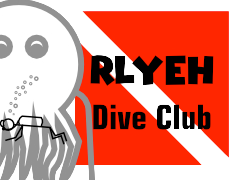The Dungeon Crawl Classics RPG is a ‘D&D-like’ game from Goodman Games . It is an RPG with the goal of providing a modern experience in many ways (Simple, cohesive rules, avoiding some of the weirder biases of old RPGs) but simulating the feel of older D&D games.
What does this mean? A major aspect is introducing a feeling of uncertainty in gaming. To aid in this, players don’t know the monster stats (no color-coded dragons!) and combat is quick and deadly.
There’s a Quick Start guide available from the publisher if you want to read the details. You don’t need it, if you’ve played any d20-era D&D-based RPGs, but some may want it. (Please skip reading the adventure!)
Everything below is subject to discussion. It’s a recommended baseline.
Character Creation #
The recommended process for character creation in DCC is called the ‘Character Funnel.’ Players grab a stack off around 3 ‘zero level characters’ per player which go into a dungeon designed to be very lethal. This is called a ‘Funnel’ adventure.
0-level characters are very easy to create by design. There’s even a web site that can create them in bulk! The secret here is that the ‘real’ character creation is the Funnel adventure itself: You might see interesting PCs killed by bad luck with traps or monsters, while a character you initially found uninspiring might acquire a magic item or innate skill that makes them interesting. Characters are generated by a very old-fashioned mode of D&D where attributes are generated by simple 3d6 rolls.
Characters earn Experience Points in the Funnel, and may obtain Level 1 mid-adventure. If they survive, they’re also bumped up to Level 1. At this time, characters can select a class, from a very simple list of Cleric, Warrior, Thief, and Wizard as well as non-human classes like Elf, Dwarf, and Halfling.
Some suggested notes for Character Creation are below:
- I’m open to generating level 0 characters with the ‘Tatterdemailion’s Heroes‘ option. This changes 3d6 rolls to 3d7 rolls, with rolls of ‘7’ counted as a 6. Characters are a bit stronger and more interesting.
- The ‘Luck’ Attribute is very important
- See ‘Campaign & Character Management’ below for some thoughts on how the players manage characters.
The World & Game Style #
DCC does not have a firmly defined world: As such, I’d like a DCC campaign to be run in such a way that players can cooperate to create much of the world. The adventures (and GM) establish a few details, but if players add their own that’s canon!
Most Funnel adventures suppose a simple village where the PCs reside, and suggest that there’s a larger town that the village trades with and in turn trades with a large city-state. There’s some place names suggested, but they’re just suggestions. Everyone can suggest things that might help fill up the map.
The DCC rules try to encourage a style that is meant to emulate the ‘good parts’ of older gaming. It’s not necessarily deep: Most adventures are basic ‘dungeons’ without a lot of time in town. That can happen: See the next section for how I feel players should direct the campaign.
Campaign & Character Management #
One thing with the Funnel mechanic is you may have more Player Characters survive a funnel than we have Players: My suggestion is that excess characters be placed in a ‘pool’ and available to all. I’d suggest the following guidelines:
- All PCs that survive a Funnel adventure are placed in a pool. Players may ‘claim’ one PC if they wish.
- Once a PC is used by a Player in an adventure intended for Level 1 or higher the character is considered ‘claimed’ by that Player.
- The Player who has claimed a PC has ownership and is the authority for that character. They can loan them out if they wish.
- Players generally can only control one PC at a time.
The second part of this is between the undefined setting and pool of characters, players can discuss and suggest a next adventure or goal at the end of a game. For example, players might say something like:
- “We need to get some gold.”
- “Vergilia the Wise wants to learn some new spells.”
- “Our high-level characters want to take over that city we can’t stand!”
- “Let’s follow up this plot-hook from the previous adventure.”
- “We need new blood. Let’s run a Funnel!”
The GM will use this as guidance: If the request is to learn new magic, the next adventure might be something that happens along the way. For example, if the PCs are interested in going somewhere that is established as being a long journey away, there might be a ‘shipwrecked!’ adventure along the way.
As said, running a new Funnel to get some more PCs in the pool is always an option, and is great if there’s new people or an odd group present.
